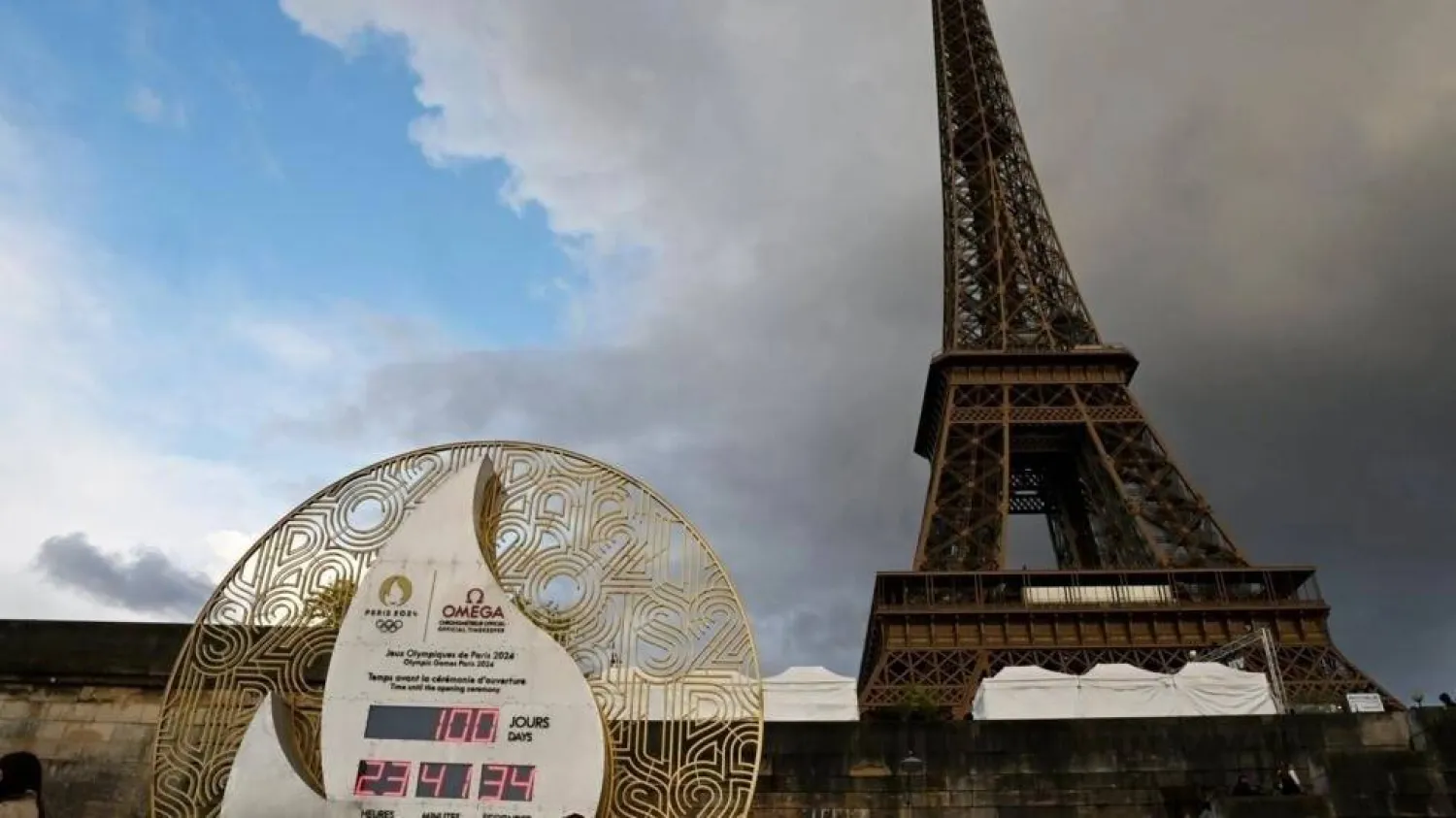The Eiffel Tower is set for a starring role during the Paris Olympics this year, but the landmark and its park have become symbols of the capital's struggles with cleanliness and crime.
In the shadow of the 330-meter (1,082-foot) monument, workers are already building the temporary stadium that will host the beach volleyball during the Games, which start on July 26, AFP said.
The opening ceremony along the river Seine will also finish in front of the attraction, while judo and wrestling will take place in a semi-permanent exhibition space at the far end of its park.
Although the sport will look spectacular in the TV coverage, behind the scenes the area has become a lightning rod for complaints about the management of public space in the capital and the pressures of mass tourism.
"It's very dirty and it's getting worse and worse," local resident Frederic Mabilon, 78, told AFP as she walked her dog in the Champ-de-Mars park beneath the iron monument known as the "Iron Lady".
Mabilon remembers visiting the area as a child, enjoying the merry-go-rounds and play areas that have been closed ahead of the Olympics -- much to the anger of their operators.
"Look there," she said, pointing to a man urinating on the fence of one of the homes that line the park. "It happens all the time. There aren't enough toilets."
Mikael Dalle, a 53-year-old local out with his son, said he was bothered by the illegal hawkers who shout out to passers-by, offering unlicensed food and drinks, trinkets and berets.
"It's definitely got worse and we've lived around here for the last eight years," he said.
- Street crime -
Around seven million people ascend the Eiffel Tower each year and many more pose for photos, eat picnics, or play ball games in the Champ-de-Mars.
With so many visitors, the park's lawns are often rubbed bare, while at night they are left strewn with rubbish by revelers.
"You should see it at 6 o'clock in the morning. It's catastrophic," complained another local dog walker, Louis, 53, who preferred not to give his surname.
Left-over food and overflowing bins are a delight for the flourishing local rat population.
And while low-level street crime such as pick-pocketing and scams have long been a feature of Paris's tourist hotspots, two alleged rapes took place on the Champ-de-Mars at night last year, shocking locals.
"I've told my eldest daughter not to walk through here in the dark," Louis explained.
The right-wing opponents of Socialist mayor Anne Hidalgo blame her for the problems, with local senator Agnes Evren claiming the area has turned into "the far-west".
Even the tower's workers are unhappy, launching a five-day strike in February to protest against its state of disrepair and demanding the city spend more on painting and anti-rust protection.
- 'Paris will shine' -
Hidalgo, an eco-minded left-winger re-elected for a second term in 2020, is admired by many for her policies to restrict cars and promote cycling.
But she has also been dogged by complaints about cleanliness, with a survey in 2021 suggesting eight out of ten Parisians found their city "dirty".
An online campaign in 2021 called #saccageParis (#TrashedParis), in which residents shared pictures of filth or ugliness, struck a chord in a city that prides itself on its elegance.
To tackle the security problems, police announced a major operation for the Eiffel Tower area last June, leading to several dozen police officers on the ground per day.
"We've had excellent results in this area as well as other tourist zones in Paris," Paris police chief Laurent Nunez told AFP last week.
"But we need to continue. The Olympics are coming," he added.
The number of reported physical assaults fell by 58 percent to 21 incidents in the first quarter of the year compared with the same period of 2023, while property crimes were down 18 percent, he said.
Much of the Champ-de-Mars now stands behind steel fencing, its protected lawns growing back, its gardeners busy preparing it for hundreds of thousands of foreign sports fans.
"Paris will shine, Paris will be beautiful, Paris will be ready to welcome the world," deputy mayor Emmanuel Gregoire promised last week.
Eiffel Tower Loses Sparkle for Parisians ahead of Olympics

Parisian landmark The Eiffel Tower has lost its lustre for many who live near it due to crime and grime © Stefano RELLANDINI / AFP

Eiffel Tower Loses Sparkle for Parisians ahead of Olympics

Parisian landmark The Eiffel Tower has lost its lustre for many who live near it due to crime and grime © Stefano RELLANDINI / AFP
لم تشترك بعد
انشئ حساباً خاصاً بك لتحصل على أخبار مخصصة لك ولتتمتع بخاصية حفظ المقالات وتتلقى نشراتنا البريدية المتنوعة







